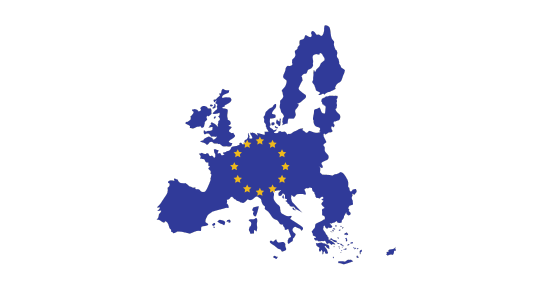As we live in a digitalized world, businesses find themselves intricately intertwined with technology, making cybersecurity indispensable for their survival and success. As European businesses embark on their digital journey, safeguarding their operations and assets from a myriad of cyber threats becomes paramount. This comprehensive exploration delves into European cybersecurity policy tailored to fortify businesses’ digital resilience, ensuring they navigate the digital frontier securely and confidently.
Find your next assignment on our freelance and permanent IT recruitment platform, or join Mindquest so you don’t miss out on any job opportunity!

Navigating the Digital Frontier

For businesses, the digital frontier presents both opportunities and challenges. The COVID-19 pandemic accelerated digital transformation, emphasizing the critical need for robust cybersecurity measures to protect business operations and assets. As businesses increasingly rely on digital infrastructure for operations and customer interactions, the importance of comprehensive cybersecurity strategies cannot be overstated.
You can also read : 10 experts in cybersecurity to follow
What is a cyber security policy for business?
A cybersecurity policy for business is a comprehensive set of guidelines, procedures, and protocols that outline how an organization will protect its digital assets, information, and systems from cyber threats.
This policy typically covers various aspects of cybersecurity, including data protection, network security, employee training, incident response, and compliance with relevant regulations and standards. It serves as a roadmap for ensuring the confidentiality, integrity, and availability of the organization’s data and systems while minimizing the risks posed by cyber attacks and breaches.
Additionally, the policy may include provisions for risk assessment, access control, encryption, and regular security audits to continually assess and enhance the organization’s cybersecurity posture.
Ultimately, a well-defined cybersecurity policy is essential for businesses to effectively manage cyber risks and safeguard their operations, reputation, and customer trust in today’s digital landscape.
Also read our blog post about practical strategies for businesses to strengthen their digital resilience
The European Cybersecurity Landscape: A Strategic Imperative

At the heart of the EU’s cybersecurity efforts lies a framework designed to foster resilience, promote innovation, and ensure collaboration in the face of emerging cyber threats. The EU Cybersecurity Strategy provides a roadmap for businesses to enhance their cybersecurity posture and navigate the digital landscape securely.
Why Enterprise Cybersecurity Should Start at the Boardroom Level
Resilience, Sovereignty, and Leadership: Pillars of Cybersecurity Strategy

Resilience, technological sovereignty, and collaborative leadership emerge as the guiding principles of the EU’s cybersecurity strategy. By fortifying essential services, nurturing technological autonomy, and fostering collaborative leadership, the EU endeavors to navigate the digital landscape securely. Initiatives such as the Joint Cyber Unit exemplify the EU’s commitment to collective action and rapid response in the event of cyber incidents. Underscoring the importance of solidarity and cooperation in safeguarding the digital realm.
Also read how Securing Smart Devices at Home
Operational Capacity and Response: Mobilizing Cyber Defenses

Operational capacity and rapid response mechanisms are fundamental for businesses to mitigate cyber threats effectively. The Cyber Resilience Act, enacted in 2024, strengthens cybersecurity rules to promote the security of hardware and software products, enhancing overall cyber resilience within the EU. Investments in cyber capacities further empower businesses to detect, deter, and respond to cyber threats proactively.
Also read What is DevSecOps? Software Development Security
Global Cooperation and Open Cyberspace: Fostering Collaborative Security

In an interconnected world, global cooperation is paramount to safeguarding cyberspace. The EU also advocates for an open and secure internet, fostering collaboration with international partners to advance cybersecurity norms and standards. Therefore, initiatives such as the EU-US Cyber Dialogue exemplify the EU’s commitment to global cyber resilience. Thus underscoring the importance of multilateral cooperation in addressing shared cyber challenges.
Navigating the Legislative Framework: European Cybersecurity Policy

European cybersecurity policy provide a robust framework aimed at ensuring a high common level of cybersecurity across businesses. Directives such as the NIS2 Directive mandate measures for enhancing cybersecurity resilience, while regulations like the Cybersecurity Act establish EU-wide certification frameworks to instill trust in IT products and services. Also, the proposed Cyber Solidarity Act underscores the EU’s commitment to collective defense and solidarity in the face of emerging cyber risks, providing a legal framework for businesses to collaborate and respond to cyber threats collectively.
Investing in Cybersecurity: Empowering Innovation and Resilience

Investment in cybersecurity also emerges as a strategic imperative for the EU. Thus reflecting its commitment to fostering innovation and resilience in the digital domain. This is why initiatives such as Horizon Europe and the Digital Europe Programme allocate significant resources to cybersecurity. And this in terms of research, innovation, and capacity building. Ensuring that the EU remains at the forefront of cyber resilience and technological innovation. By investing in cyber capacities and deployment, the EU seeks to strengthen its cyber defenses. In addition they adapt proactively to emerging cyber threats, underscoring the importance of strategic investment in safeguarding the digital realm.
Also read our Cybersecurity Expert Job Description
Building Cyber Skills and Awareness: Empowering the Digital Workforce

A skilled workforce and heightened public awareness are indispensable to effective cybersecurity. The EU invests in cybersecurity education and training initiatives to address the skills gap and empower individuals to navigate the digital landscape securely.
Initiatives such as the EU Cyber Skills Academy and the European Cyber Security Month underscore the EU’s commitment to building cyber skills and awareness, fostering a culture of cybersecurity across society.
Engaging in Cyber Dialogues: Nurturing Collaborative Partnerships

Cyber dialogues serve as platforms for nurturing collaborative partnerships and advancing shared interests in cybersecurity policy. Through initiatives such as the EU-US Cyber Dialogue and partnerships with countries like India and Japan, the EU fosters cooperation. Moreover it builds capacity, and addresses emerging cyber threats collectively. By engaging in cyber dialogues, the EU reaffirms its commitment to multilateralism and collaborative security in cyberspace. Thus underscoring the importance of dialogue and cooperation in addressing shared cyber challenges.
Demystifying European Cybersecurity: Answering Key Questions

In the dynamic landscape of the digital age, European cybersecurity laws play a pivotal role in ensuring a high common level of cybersecurity across member states.
🧑⚖️ What is the cyber law in Europe?
European cybersecurity laws are governed by directives and policy aimed at ensuring a high common level of cybersecurity across businesses operating within the EU.
At the forefront of European cybersecurity legislation stands the NIS2 Directive. A cornerstone directive aimed at enhancing the security of network and information systems across critical sectors. Enacted to address the cross-border nature of cyber threats, the NIS2 Directive mandates measures for identifying, managing, and mitigating cybersecurity risks. Thus ensuring a coordinated approach to cyber resilience across member states.
🛡️What is the EU Cyber Resilience Act 2024?
Complementing the NIS2 Directive is the Cyber Resilience Act, enacted in 2024 to bolster cybersecurity rules. Moreover it promotes the security of hardware and software products. By establishing robust cybersecurity requirements for digital elements, the Cyber Resilience Act enhances overall cyber resilience within the EU. Thus mitigating vulnerabilities and fortifying the digital ecosystem against evolving threats.
🔒What is the EU policy on cyber Defence?
The EU’s policy on cyber defense focuses on enhances coordination, cooperation, and investments in cyber defense capabilities. Central to this policy is the imperative to protect citizens and business from cyber threats through collaborative partnerships.
Initiatives such as the Cybersecurity Act and Cyber Solidarity Act underscore the EU’s commitment to fostering a secure cyber environment. The Cybersecurity Act, with its EU-wide certification framework, instills public trust in IT products and services. Thus ensuring stringent cybersecurity standards across the digital landscape. Meanwhile, the Cyber Solidarity Act, proposed to improve the EU’s response to cyber threats. It emphasizes collective defense and solidarity in the face of emerging cyber risks, fostering resilience and collaboration across member states.
🤖What is the Regulation of cyber security?
European cybersecurity policy encompass directives and regulations aimed at establishing a high common level of cybersecurity across businesses operating within the EU. These regulations span a spectrum of measures. From enhancing resilience and operational capacity to promoting global cooperation and investment in cybersecurity initiatives.
The regulatory landscape is characterized by a commitment to fostering innovation, resilience, and collaboration in the face of evolving cyber threats. By establishing clear guidelines and standards, European cybersecurity policy empower stakeholders to navigate the digital landscape securely. Thus fostering trust and confidence in the digital ecosystem.
Conclusion: Navigating the Digital Frontier
In conclusion, in an era defined by rapid technological advancement and interconnectedness, European cybersecurity legislation serves as a beacon of resilience, innovation, and collaboration for businesses. By fortifying critical infrastructure, enhancing cyber defense capabilities, and fostering global partnerships, the EU also endeavors to safeguard its citizens and businesses in an increasingly digitized world.
Legend of terms and acronyms
Last but not least, here is a list of terms and acronyms used in this guide for an easier and pleasant reading.
- NIS2 Directive: Directive on Security of Network and Information Systems 2
- Cyber Resilience Act: Legislation aimed at enhancing cyber resilience
- Horizon Europe: EU Research and Innovation Framework Programme
- EU Cyber Skills Academy: Educational initiative for cybersecurity skills training
- EU-US Cyber Dialogue: Dialogue between the EU and the United States on cybersecurity
- EU Cybersecurity Strategy: Strategic framework for EU cybersecurity
- Joint Cyber Unit: EU initiative for collaborative cyber incident response
- Digital Europe Programme: EU programme for digital transformation
- Cyber Solidarity Act: Proposed legislation to improve EU’s response to cyber threats
- NIS2 Directive: Directive on Security of Network and Information Systems 2
- Cybersecurity Act: EU legislation establishing cybersecurity certification frameworks
- EU-US Cyber Dialogue: Dialogue between the EU and the United States on cybersecurity
Need advice on how to start or develop your freelance consulting business in tech or IT? Need to start a new permanent or freelance assignment? Join Mindquest and get support from our team of experts.

